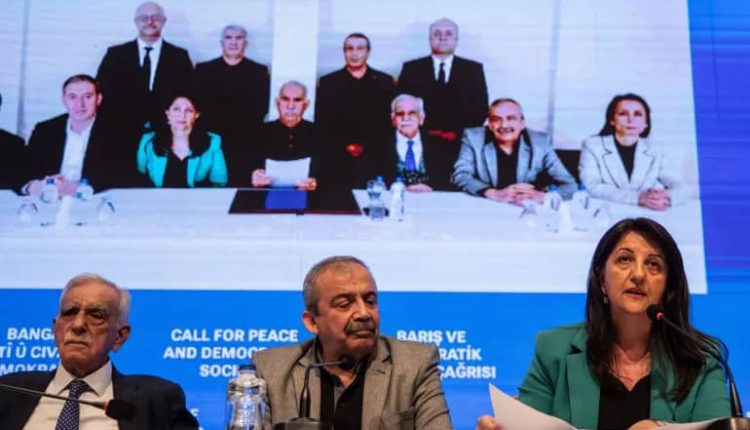Turkey’s Kurdish PKK Holds Party Congress Following Öcalan’s Call to Disband and Disarm
By Kardo Roj
ANKARA, Turkey (North Press) – The Kurdistan Workers’ Party (PKK) announced on Friday that it successfully held its 12th party congress earlier this week, in response to a historic call by its imprisoned leader Abdullah Öcalan for the group to disband and renounce armed struggle.
According to a statement issued by the PKK, the congress took place between May 5 and 7 and centered around Öcalan’s proposals, which the party described as “a historic invitation” to reassess its strategic and political trajectory.
Öcalan, who has been held in solitary confinement on Turkey’s İmralı Island since 1999, had issued a message in late February calling for the dissolution of the PKK and a transition toward a peaceful political process. His message was read publicly in Istanbul by leaders of the pro-Kurdish Equality and Peoples’ Democracy Party (HEDEP), formerly known as the HDP.
The February statement was widely welcomed at the regional and international levels, with observers viewing it as a rare opportunity to unlock a long-stalled peace track between the Turkish state and Kurdish factions.
In its Friday statement, the PKK emphasized that key strategic decisions were taken during the congress but stopped short of revealing details. “The proposals presented by Leader Öcalan were extensively discussed,” the statement read. “They mark a decisive moment that calls for a fundamental reassessment of our organizational and political path.”
The party noted that a full summary of the congress’s outcomes will be made public soon.
Aisha Gül Doğan, spokesperson for HEDEP, said in a press briefing Friday that her party was closely monitoring developments and reiterated the need for a comprehensive political resolution. “The next phase will be the most challenging,” she said, “and it will require deep political will and inclusive dialogue.”
Speaking Thursday at the ruling Justice and Development Party’s (AKP) headquarters in Ankara, Turkish President Recep Tayyip Erdogan declared that “all obstacles have been overcome” and that “the PKK will be dissolved—today or tomorrow.”
“The weapons will be laid down,” Erdogan said, addressing lawmakers and ministers. “A new chapter will begin for all of us. Politics will now have the chance to play its rightful role.”
The remarks came amid heightened anticipation in Turkish political circles regarding whether the PKK would formally declare an end to its decades-long insurgency. The PKK, which launched its armed campaign in 1984, is designated a terrorist organization by Turkey, the United States, and the European Union. The conflict has claimed tens of thousands of lives.
While Öcalan’s message and the PKK’s congress are seen as positive developments, analysts caution that the path to a lasting settlement remains fraught with challenges. Past ceasefires and negotiation efforts—most notably between 2013 and 2015—collapsed amid mutual distrust and political tensions.
HEDEP, the country’s main pro-Kurdish party, has repeatedly called for constitutional recognition of Kurdish identity, decentralization reforms, and the release of political prisoners. The party’s legal status, however, remains precarious amid an ongoing closure case before Turkey’s Constitutional Court.
The latest developments are being closely watched in neighboring Iraq and Syria, where PKK-affiliated groups maintain an active presence. In northeast Syria, the Autonomous Administration and its military wing, the Syrian Democratic Forces (SDF), have sought to distance themselves politically from the PKK while continuing to face Turkish military pressure.
Any genuine de-escalation between the PKK and Ankara could have ripple effects across the region, possibly easing cross-border tensions and opening the door for renewed diplomatic engagement between Kurdish actors and the Turkish state.
For now, the PKK’s congress signals a potential turning point in one of the Middle East’s most protracted conflicts. Whether it leads to a durable peace, however, will depend on the actions of all parties in the critical weeks ahead.

